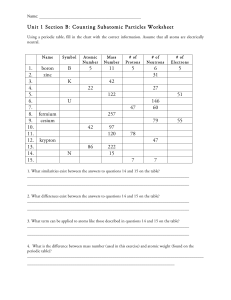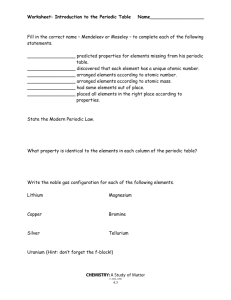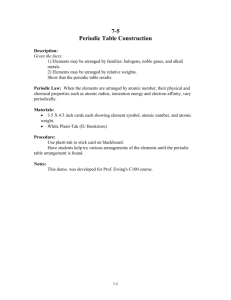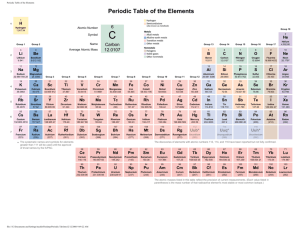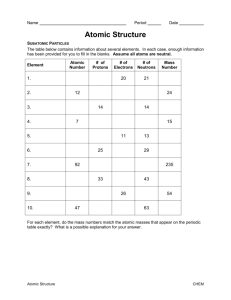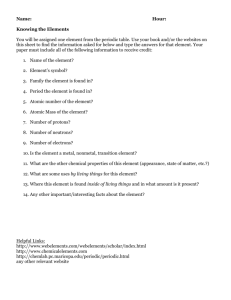A-5 Element Project
advertisement
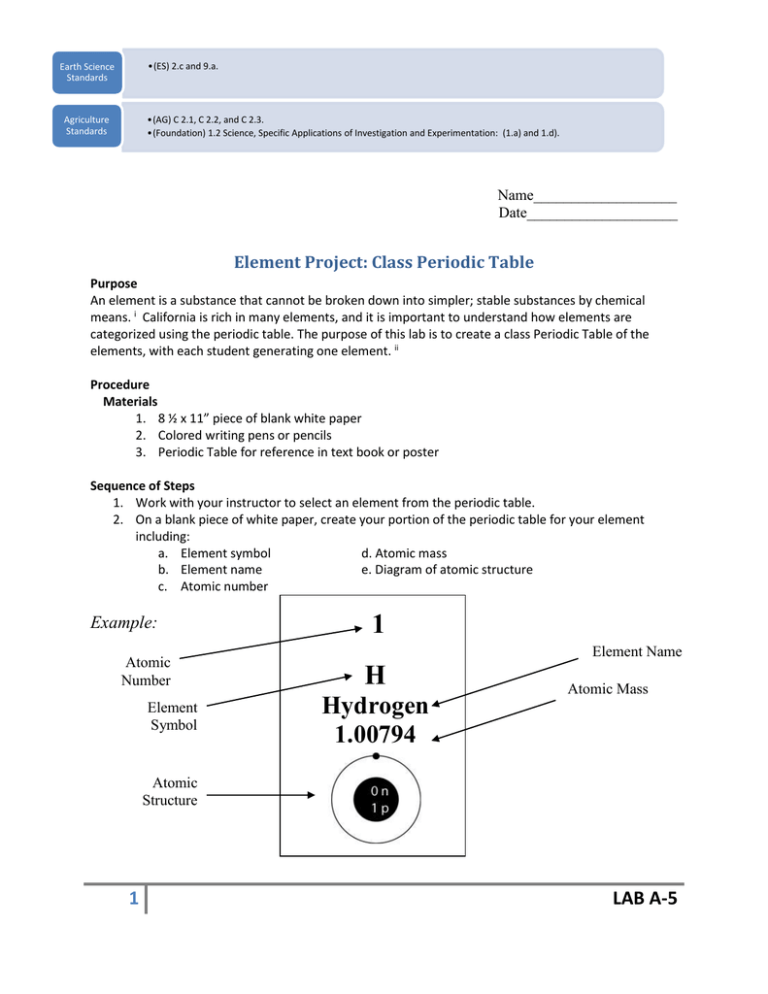
•(ES) 2.c and 9.a. Earth Science Standards Agriculture Standards •(AG) C 2.1, C 2.2, and C 2.3. •(Foundation) 1.2 Science, Specific Applications of Investigation and Experimentation: (1.a) and 1.d). Name___________________ Date____________________ Element Project: Class Periodic Table Purpose An element is a substance that cannot be broken down into simpler; stable substances by chemical means. i California is rich in many elements, and it is important to understand how elements are categorized using the periodic table. The purpose of this lab is to create a class Periodic Table of the elements, with each student generating one element. ii Procedure Materials 1. 8 ½ x 11” piece of blank white paper 2. Colored writing pens or pencils 3. Periodic Table for reference in text book or poster Sequence of Steps 1. Work with your instructor to select an element from the periodic table. 2. On a blank piece of white paper, create your portion of the periodic table for your element including: a. Element symbol d. Atomic mass b. Element name e. Diagram of atomic structure c. Atomic number Example: Atomic Number Element Symbol Atomic Structure 1 1 Element Name H Hydrogen 1.00794 Atomic Mass 100.100 LAB A-5 Observations and Conclusion 1. What evidence do scientists have, which indicates that all elements with an atomic number greater than that of lithium have been formed by nuclear fusion in stars? 2. Identify three elements and indicate their major economic importance to California. Element 1: Element 2: Element 3: 3. Looking at the completed periodic table, make three observations relating to the organization and information included in the periodic table. 4. N, P and K are three common elements included in plant fertilizer. Identify these elements and in the space below write their name, atomic number, and atomic mass. 2 LAB A-5 i (2007). Earth Science. Holt, Rinehart and Winston: Harcourt Education. ii Galan, Daniel (2008). Element Project, Lab. Calexico High School. 3 LAB A-5
